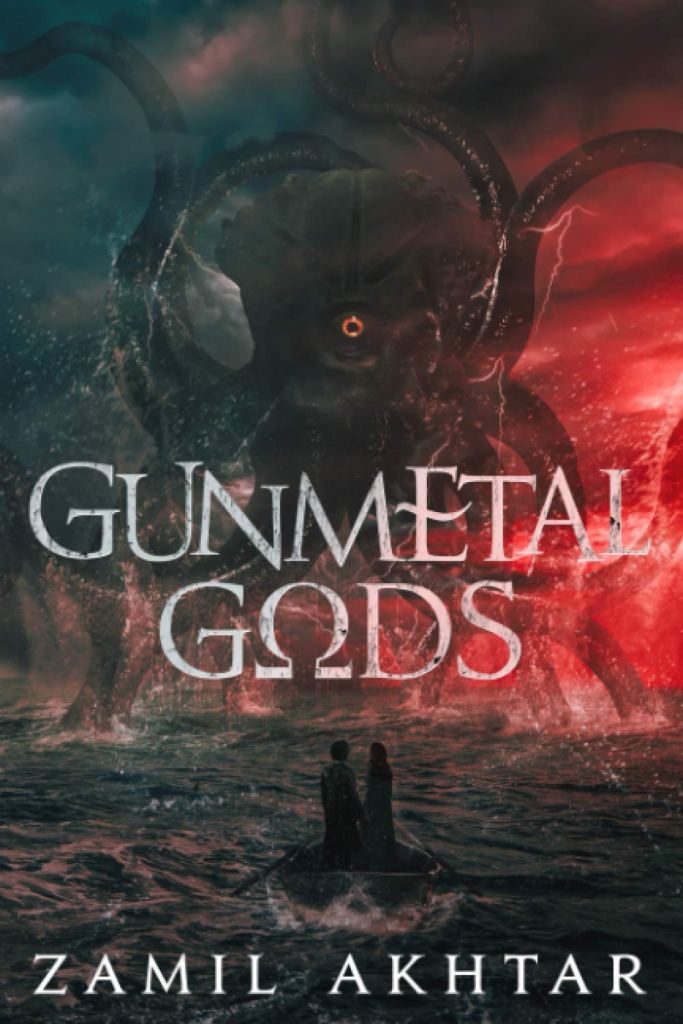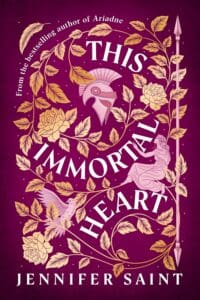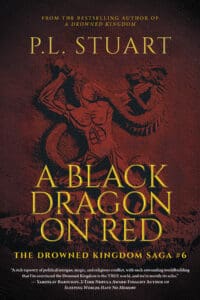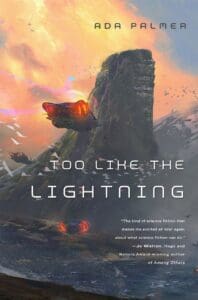
Synopsis
They took his daughter, so Micah comes to take their kingdom. Fifty thousand gun-toting paladins march behind him, all baptized in angel blood, thirsty to burn unbelievers.
Only the janissaries can stand against them. Their living legend, Kevah, once beheaded a magus amid a hail of ice daggers. But ever since his wife disappeared, he spends his days in a haze of hashish and poetry.
To save the kingdom, Kevah must conquer his grief and become the legend he once was. But Micah writes his own legend in blood, and his righteous conquest will stop at nothing.
When the gods choose sides, a legend will be etched upon the stars.
Review
I first noticed this book a while back when I spotted the cover on Twitter. Who can blame me, right? It’s astounding and really sets up the tone of the whole book. Gunmetal Gods is pretty dark and fairly bleak at that. But, it works. This is a tale of grief, revenge, ambition, religious zealotry, and rage. It’s a military fantasy based on Middle Eastern history, especially that of the Ottoman Empire and the Crusades, with a distinctly Lovecraftian twist.
I rested and ate and drank. I prayed and gave thanks to the Archangel. Then I cleaned my sword of bloodstains to make space for more.
The worldbuilding is easily the most impressive aspect of Gunmetal Gods. The scope and breadth of the world that Akhtar has built continued to impress me as layer upon layer was woven into the narrative. The story focuses on two countries, empires in their own rights, with vastly differing cultures and the exploration of those differences played out through the two opposing main character’s points of view. The Middle Eastern inspiration was evident from the start, with one culture clearly representing Middle Eastern culture, such as the Ottoman Empire and Islam, with the other, that of the Crucian Empire, representing Western society and Christianity. The whole conflict itself is reminiscent of the Crusades, with the Crucians waging a holy war on the city of Kostany, the site of the holiest place in the Crucian religion, but which has been under the control of the Sirmian Empire and the seat of Sirm’s ruling Shah. Adding on to that are the fantastic elements, such as the magi, the djinn who give them their magic, and yes, the gods themselves.
At the heart of this particular conflict are our two MCs, Micah the Metal and Kevah, and the story is driven by their opposing narratives. Micah is an Imperator from the Holy Empire of Crucis and a zealot of the Archangels. He leads his army with a holy purpose, to retake the holy city of Kostany from the worshippers of Lat. Kevah, on the other hand, is ten years separated from his days of warring. A washed-up, middle aged former slave and eventual war hero who wants to live the rest of his days in peace. See, Kevah was once the most respected man in Sirm, having the honor of being the only man in remembrance to kill a magus, but all that ended when his wife disappeared ten years prior. His legend is precisely what pulls him back into conflict, however, with the Shah asking him to do the impossible for a second time and hunt down and kill a rogue magus. This is where the story begins, but our MCs are soon carried away by the breakneck speed of the plot, which at times might be a tad too fast. Don’t get me wrong, there’s never a dull moment, but I’d have liked for there to be a few lulls in the pace to catch my breath.
The truth: plotters and planners ruled the world, and to win, I’d have to do things I hated. Until now, I’d been living wrong. I’d been clinging to peace, when war was eternal. It was the inevitable, and you either won or watched everyone you love choke on blood.
What I really love about Gunmetal Gods is the fact that it is in turns extremely easy or unbelievably difficult to root for either character. Throughout the book, I wavered between feelings of total sympathy and those of disgust. Both Micah and Kevah experience the worst kind of grief imaginable and experience setbacks and personal tragedies aplenty and they way in which they express that grief is often through rage and brutal violence. Both sides believe they are in the right, with Crucis believing the capture and cleansing of Kostany is anointed by the Archangels themselves and the Latian’s believing their hundreds of years of holding Kostany as enough justification to continue. Akhtar excels at showing war as it truly is, a grey area in which there is no clear hero, but often many, many victims.
I really enjoyed my time with Gunmetal Gods and I can’t wait to get lost in its sequel. From the beginning, I was swept away by the incredible worldbuilding and sweeping narrative. The real-world inspiration grounded the story and leant a lot of credibility to it, but the inventiveness in the worldbuilding was the real star for me. A decidedly dark and bleak tale, Gunmetal Gods nevertheless had me on the edge of my seat with its blistering pace, but I wish there was a little more time to sit quietly with the characters. Micah and Kevah are true leading men and watching their stories unfold was both exciting and heartbreaking in turn. Akhtar told them with an unflinchingly honest look at the realities of war and what loss and grief will do to a person.
“We’re all good men until we’re pushed to the edge. Then you either die a good man, or the good man in you dies.”








Leave a Reply